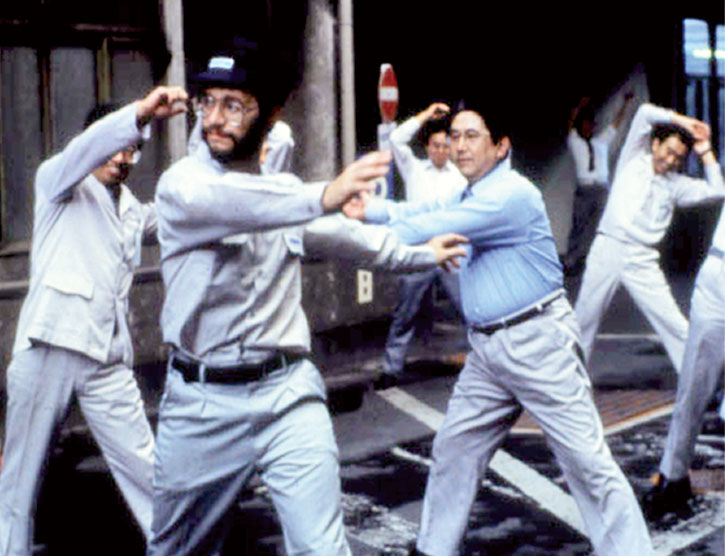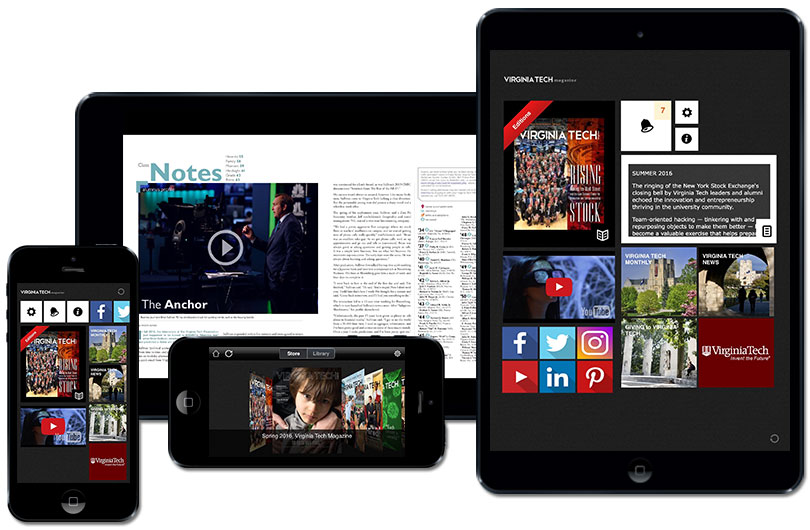Moment
Moral imperative
Moral imperative
by Juliet Crichton

On a Fulbright Fellowship in fall 1986, Richard Wokutch conducted research on corporate social responsibility, focusing on worker safety and health in the Japanese auto industry. At Mazda Motor Corp.'s main plant in Hiroshima, Wokutch (in hat and glasses) joined employees in morning exercises that incorporated stretching and warming up while the company song played.
Money, sex, and power are typically at the root of business ethics violations, says Richard Wokutch, R.B. Pamplin Professor of Management in the Pamplin College of Business.
For some four decades, Wokutch has taught, researched, and written about business ethics and the regulation of corporate social responsibility and performance, having spent long stretches as a self-proclaimed "participant-observer" mingling among workers in international settings — and then sharing his insights.
Which begs the question: How did a Catholic school-educated kid from inner-city Pittsburgh land upon a line of work that has allowed him to travel the world and assess global management practices?
Fascinated by economics and finance as an undergraduate at the University of Pittsburgh, Wokutch didn't exactly picture himself laboring among — and for — the people. "What really was my goal at that time," he said, "was to be as successful and to make as much money as possible. My original thought was to get an MBA from a top-notch school and then work in the private sector."
But caught up in the idealism of the 1960s, Wokutch soon realized that he wanted to help make the world a better place, perhaps working for the World Bank in international development efforts.
Stepping off an elevator in Pitt's Cathedral of Learning to pick up an application to take the GMAT (Graduate Management Admission Test), Wokutch saw a sign: "Get a Ph.D. in [what was then called] environmental influences on management." He asked about the program and was whisked away to the program head's office. "If you get a Ph.D. in business," the professor told him, "you can do all sorts of things: consulting, teaching, running your own business." Wokutch paused for a moment: "Okay, that's what I'll do." All told, it was a 15-minute conversation.
As a graduate assistant for the business school's associate dean, Wokutch — who still had designs on working for the World Bank — was advised to join academe and become tenured because he could move from teaching to industry much more easily than the reverse. After earning his doctorate at age 26 and tenure at Virginia Tech in his early 30s, Wokutch promptly checked on entering the World Bank's Young Professionals Program. He was told that he "wasn't young enough anymore." And thus his globe-trotting research began in earnest.
After two Fulbright fellowships and the publication of two books, Wokutch introduced Pamplin students to study abroad programs to Asia. "At that point, my research and teaching and the study abroad programs really merged," he said.
The first recipient, in 2010, of Pamplin's Award for Outstanding International Research, Wokutch also was recognized in 2011 with the Virginia Tech Alumni Association Award for Excellence in International Research and in 2015 with Pamplin's Award for Excellence in International Programs.
And the moral of this story? The World Bank missed out on a good one.
Virginia Tech Magazine App
for iOS and Android


